Eleven employees have been honored with the Emory University Award of Distinction. Honorees were recognized at a dinner on March 31 with President James Wagner and received a $1,000 award. Each year, the award recognizes members of the Emory community who have demonstrated exceptional dedication to their jobs.
The 2014 Award of Distinction honorees are:
Audrey Adelson
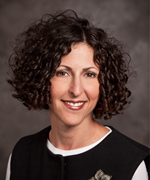
As a WorkLife Consultant for the Human Resources Division, Adelson led the effort to develop and launch the Caregiver Support Program in 2013. The innovative new program provides resources and support to the growing number of Emory employees who find themselves caring for an aging or ill adult, such as a parent or spouse. Adelson led a team of subject-matter experts, both inside and outside of Emory, to review existing policies, practices and programs, and to research best practices for supporting family caregivers. She worked with other internal human resources departments to make policy and programmatic changes to provide better support to employee caregivers. These include changes to leave policies, increased resources, a new professional care management benefit, in-person workshops on relevant caregiver topics, and promotion of workplace flexibility options. The Caregiver Support Program has already been recognized as a best practice model, attracting national attention from the Alliance for Work-Life Progress, Employee Assistance Professionals Association, and the U.S. Centers for Disease Control.
Lynell Cadray
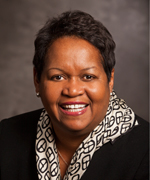
Cadray's transformational leadership in the School of Nursing has led to significant improvements in the areas of student recruitment, retention and the overall student experience. As associate dean for enrollment and student affairs, she has been a catalyst for developing innovative solutions with positive results, including reorganizing the Office of Enrollment and Student Affairs, launching a new online application process, implementing creative admission marketing strategies, and developing a strategic approach to national recruitment. Her leadership has led to as much as a 45 percent increase in applications for certain programs, attracted more academically competitive students from around the world, and increased first-year retention rates. Cadray has helped bridge Emory College, Oxford College, and the School of Nursing to create a dynamic four-year experience for nursing students. She overhauled the student recruitment and application process for Emory and Oxford, and continues to collaborate with the Pre-Health Mentoring Office to offer weekly academic advising for prospective nursing students. Cadray is also the school's first Chief Diversity Officer.
Annie Carey
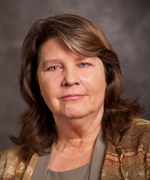
Carey, senior secretary for Emory College, has worked tirelessly to make the Department of Music and its operations more environmentally friendly by serving as a volunteer sustainability representative. From implementing a temperature policy to purchasing more sustainable office products, her leadership as an ambassador of green initiatives has encouraged behavioral changes within her department, contributing to Emory's sustainability. Some of these initiatives include: replacing classroom schedule notebooks with online calendars; arranging for her department to be a campus location for battery recycling; participating in the Emory Recycles Office Purge Initiative; ensuring department participation in the Emory Recycles Annual Building Recycling Competition; and developing a proposal for a new sustainability initiative to make Emory College's course evaluations available online. Carey regularly attends the meetings of the Emory Green Office Team to assess the status of sustainability in Emory's administrative office spaces and to develop a voluntary program to increase opportunities for improved office sustainability.
Ciannat M. Howett
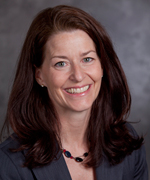
As Director of Emory's Office of Sustainability Initiatives, Howett uses her creativity, persistence and courage to support Emory's sustainability vision. She has worked to build cross-cultural relationships with faculty, staff and students across campus to achieve the University's sustainability goals. Because of her efforts, over 50 volunteer sustainability representatives in departments across campus now work together to support behavior change in their buildings, 20 student leaders regularly caucus to coordinate activities, and 197 faculty have participated in the nationally recognized Piedmont Project to develop new and renovated courses. Her work with Campus Services is on track to help Emory reach its goal of reducing energy consumption 25 percent per square foot by 2015 which, to date, has already saved over $19 million. Emory's local and sustainable food procurement has reached 26 percent, and landfill waste diversion is approaching 65 percent by the 2015 goal. Her efforts have brought Emory national recognition, including a Gold ranking from the Association for the Advancement for Sustainability in Higher Education, and the 2013 Best Higher Education Institution citation by the U.S. Green Business Council's Center for Green Schools initiative.
Deena Keeler
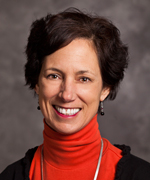
As assistant director of auxiliary services, Keeler has helped Campus Services meet its recycling and waste diversion goals. She has extensively researched composting operations and meeting with campus constituents, campus food service providers, and composting vendors to launch a new University-wide compost program. As a result, composting services are now available all across Emory's campus; last year, Emory was able to divert 656 tons of organic waste from the landfill. In other recycling efforts, Keeler gave students an opportunity to donate unwanted belongings to families devastated by tornadoes in Joplin, MO. The "Don't Dump It, Donate It" program is an annual event, and in 2013, over nine tons of clothing and household items were collected from Emory student move-out days for nonprofit organizations. Other programs Keeler has developed are the Green Events Program, campus building recycling competitions, Greeks Go Green, secure document shredding, and fabric recycling. She also collaborated with colleagues at Oxford College to develop a pilot program for desk-side recycling collections. Because of Keeler's efforts, Emory has been recognized with the 2013 Innovation Award by the Georgia Recycling Coalition and the Annual Award for Waste Reduction from the Keep Georgia Beautiful Foundation.
Jane A. Lawson
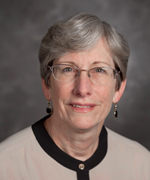
As a senior program associate in the School of Medicine, Lawson has made outstanding contributions to the Emory Vaccine Center (EVC). She coordinates educational programs, including weekly seminars and monthly vaccine dinner clubs, and organizes scientific symposiums and graduate school seminars with faculty and invited researchers. She has been involved with Action Cycling Atlanta and the AIDS Vaccine Bike Ride since its creation, helping plan this major EVC fundraiser. She implemented a community service project that contributes to the Ponce Clinic food pantry, serving HIV/AIDS patients. Lawson is also an expert in Elizabethan Court studies and represents Emory with peer-reviewed scholarly publications and papers at national and international meetings. In 2013, Lawson wrote an amicus brief for Emory to submit in the case of "Authors Guild v. HathiTrust Digital Library (HDL)." When Emory sought a person with expertise in the relevance of older books to current medical and scientific research, Lawson led the University's response.
Sue McAvoy

As a director of Emory Law School's Career Center, McAvoy's main role is to advise students concerning their careers. She also coordinates educational programming, organizes a large career fair in New York, and serves as advisor to Emory's Public Interest Committee (EPIC). Eighteen years ago, she started the EPIC Inspiration Awards, which celebrates lawyers who do extraordinary work in the public interest and raises funds for law students interested in pursuing public interest legal work each summer. McAvoy is also responsible for the Public Sector Career Fair, which in 2013, brought over 80 employers to interview and hire students in Georgia law schools. She a champion for reducing waste. She has decreased costs in the law School by insisting on composting options, creating signs to encourage use of compost and recycling bins, and ensuring that recycling takes place at every event. McAvoy also insists on policies that require the entire department to travel, eat and work more sustainably.
Sandra A. Schein
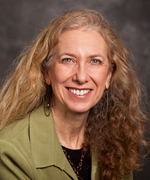
As Oxford College's director of counseling and career services, Schein is a skilled clinician, thorough administrator and caring professional who is deeply committed to the Oxford campus community. She is responsible for reshaping Oxford's counseling services and has made significant administrative improvements for better facilities and increased access to prompt care for students. She successfully advocated for Oxford's first health educator and has personally delivered dozens of health and mental health outreach programs. Schein has also been an innovator, advocate and leader in suicide prevention and depression screening. She serves as the clinician for all high-risk students and follows their cases on nights and weekends, routinely making calls to parents and health providers. She also helped develop a program called POOCH, which humanely housed adoptable pound dogs at Oxford. The dogs were cared for by students and then adopted by local families. Schein demonstrates clear involvement in community life at Oxford by leading student leadership retreats, singing in the college chorale, attending the annual chaplain's fall retreat, and presenting topics for Family Weekend and special groups.
Sam Shartar
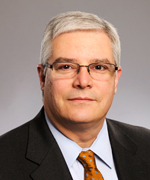
Shartar has demonstrated his commitment to Emory's safety and security by making improvements within the Office of Critical Event Preparedness and Response (CEPAR), where he serves as senior administrator. He regularly leads highly complex disaster exercises, one of which was the showpiece for a visit by the National Safety Council, and contributed to Emory's designation as a Safe Community. He has enhanced Emory's preparedness and exercise capabilities by aligning with the Homeland Security Exercise and Evaluation Program. Determining that Emory's severe weather monitoring capability could be more uniform and cost efficient, Shartar effectively doubled Emory's buying power with the Telvent weather-monitoring program to provide forecasts and early warning for severe weather. He brokered a partnership with DeKalb County for a digital upgrade for Emory's radio system, producing a savings of $3.1 million dollars. Shartar also helped develop an electronic crisis management communications platform, the Emory Critical Incident Management System. In addition, he leads the Clifton Emergency Operations Group, which connects Emory with other agencies to plan for crises that could impact the Clifton Corridor.
Mindy Simon
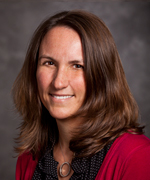
As an associate general counsel, Simon serves as an adviser, advocate and educator both on and off Emory's campus. In the wake of the child sex abuse scandal at Pennsylvania State University, Simon proactively led the effort to make Emory a safer place for minor children who visit the campus for camps or other activities. She inventoried of all Emory programs that host minors, developed new policies and university-wide protocols, and partnered with the Barton Child Policy Center to develop and deliver an intensive training program for Emory staff and potential clients. The program taught participants how to recognize signs of potential sex abuse, explained newly established University protocols, and discussed how to handle delicate situations. Her compassion, dedication and personality are exemplified not only in her work at Emory, but in the community as well. Simon was recently recognized as 2013 Attorney of the Year by the Pro Bono Partnership of Atlanta, an organization that matches volunteer lawyers with local nonprofits in need of free legal counsel.
Sherry M. Stodghill
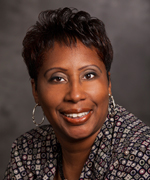
In her role as data services supervisor for Human Resources, Stodghill has developed a culture of exceptional customer service, which has impacted the financial wellbeing of the University. Her diligence ensures that departments pay fewer payroll on-demand check fees, request fewer retro salary transfers, and avoid paying salary on terminated employees. Because of her ability to teach and explain complex material, Stodghill has been instrumental in developing, maintaining and delivering training for end users, creating processes that work well for the HR representative. She routinely educates and trains HR representatives on how to best use HR applications to legally comply with federal mandates and better accomplish division goals. When Data Services eliminated paper for processing employee transactions, she helped make the project a success. She has also been the driving force in re-energizing the training function in Data Services, leading the effort to bring together departments inside and outside of HR to develop a new educational program called "HR Boot Camp."
